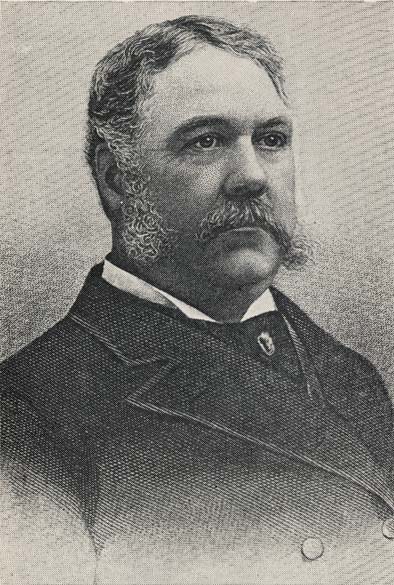Chester Alan Arthur, twenty-first president of the United States, was born in Fairfield, Vt., on October 5, 1830. Arthur was the son of a Scotch-Irish clergyman from Ballymena, Ireland. Five years later the Arthurs moved to Greenwich, in Washington County, where at Union Village young Chester's school days began.
He inherited the literary tastes of his father and was very popular both among his schoolmates and his teachers. He was sent to Schenectady to prepare for college. At the age of eighteen he graduated from Union College where, in a class of one hundred, he was one of six to be elected to membership in Phi Beta Kappa Society. From Union College he went to his father's home in Lansingburg, took up the study of the law, and in 1854 he was admitted to the bar.
Young Arthur went to New York where he became a successful practicing lawyer and a leading Republican politician. Although he had no record of service with troops during the Civil War he performed administrative duties, holding such posts as engineer-in-chief, inspector-general, and quartermaster-general of the state of New York. In 1863 he returned to private life with a detailed knowledge of political matters. In 1871 President Grant appointed him collector of the port of New York where for seven years he was responsible for the handling of most of the customs revenue of the United States.
In 1880 Arthur was nominated for the vice-presidency and was elected with President Garfield whose office he took over the next year when the latter was assassinated.
His political courage was shown in some very striking acts. He vetoed the Chinese exclusion bill of 1882 in the face of unanimous and excited demands of the Western States. He advocated and secured the passage in 1883 of an act reforming the civil service and establishing an effective Civil Service Commission. His chief claim to remembrance, however, is found in his efforts to build up an efficient navy in place of an old and neglected fleet. President Arthur was, in fact, the creator of the new American navy.
Upon its personal and social side his Presidency was one of singular distinction. The honors of the White House were done with a friendly dignity and for the first time since the Civil War it became the center of generous and stately hospitality. He died in New York City on November 18, 1886.
